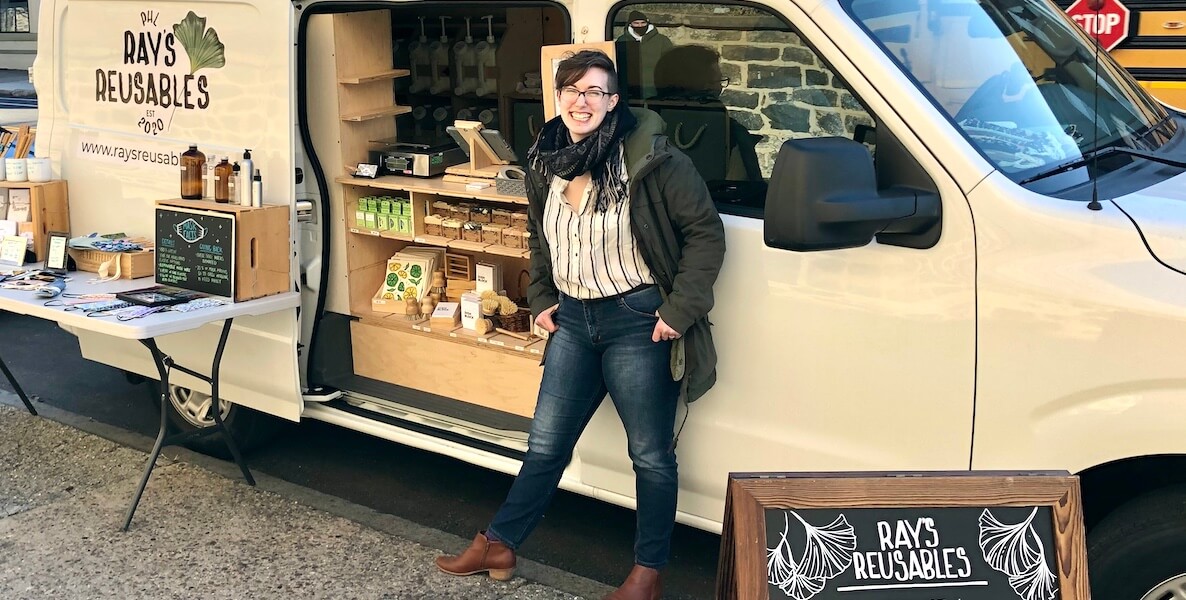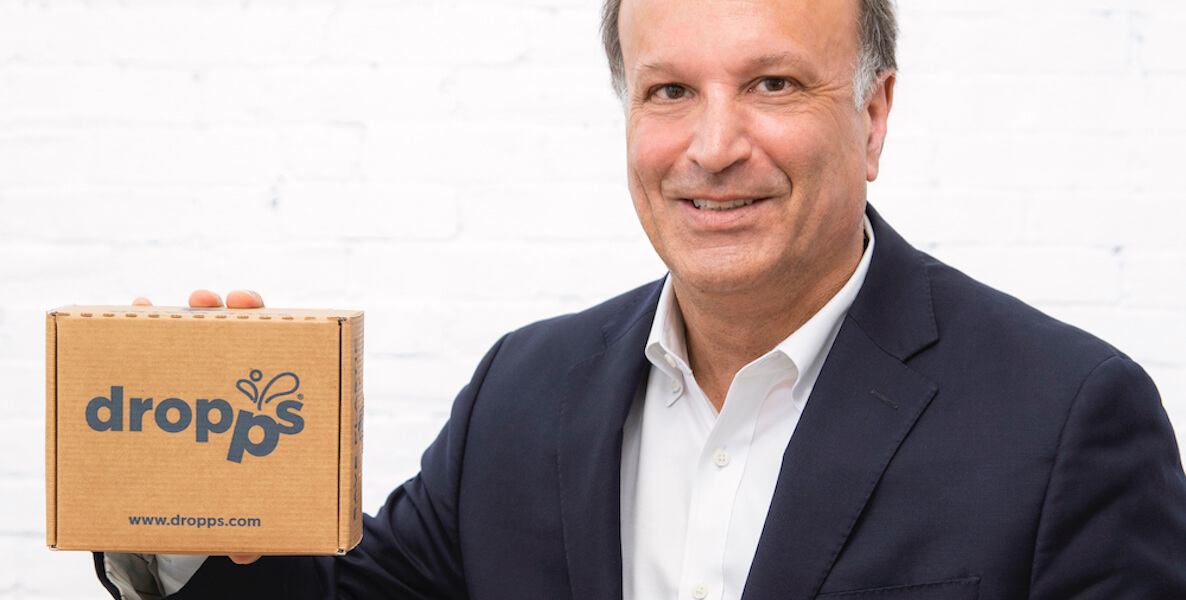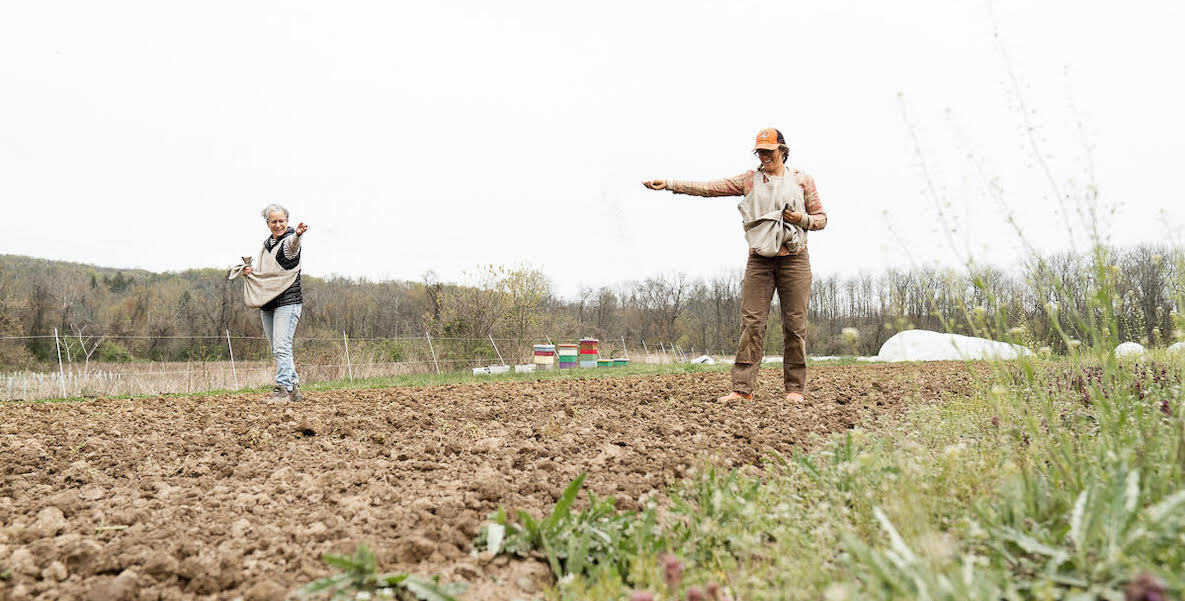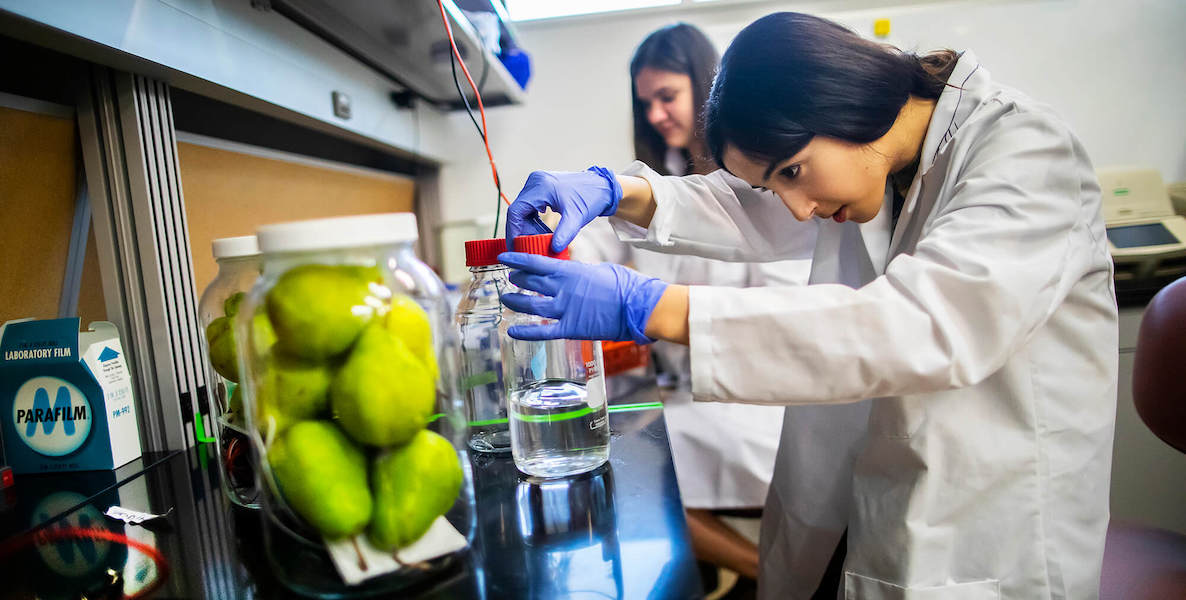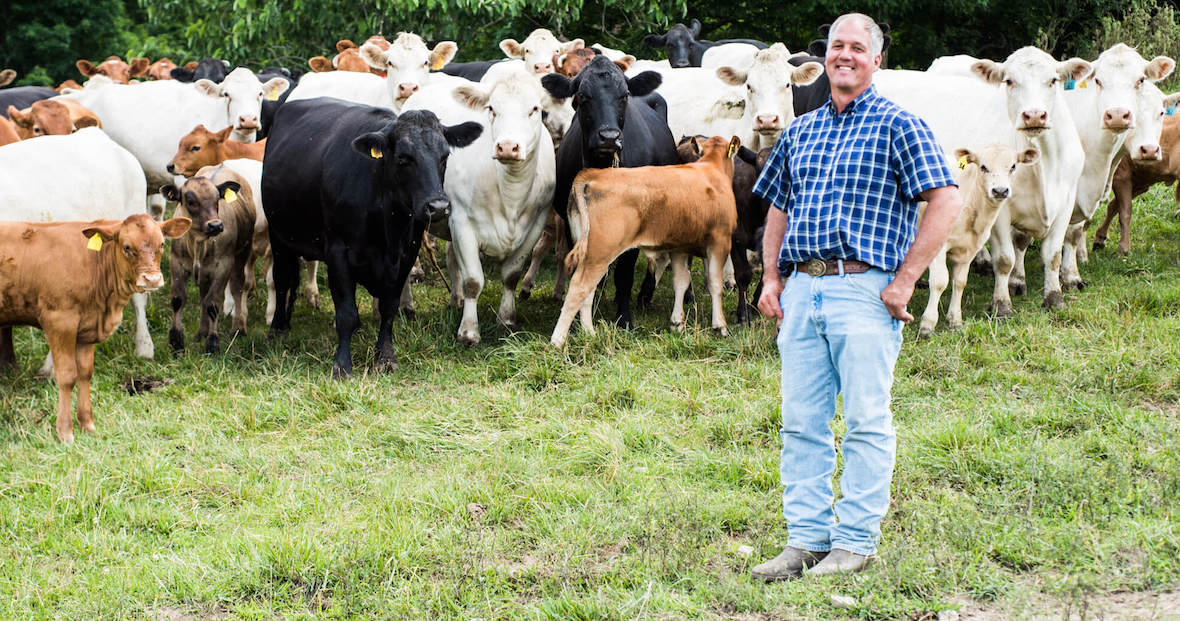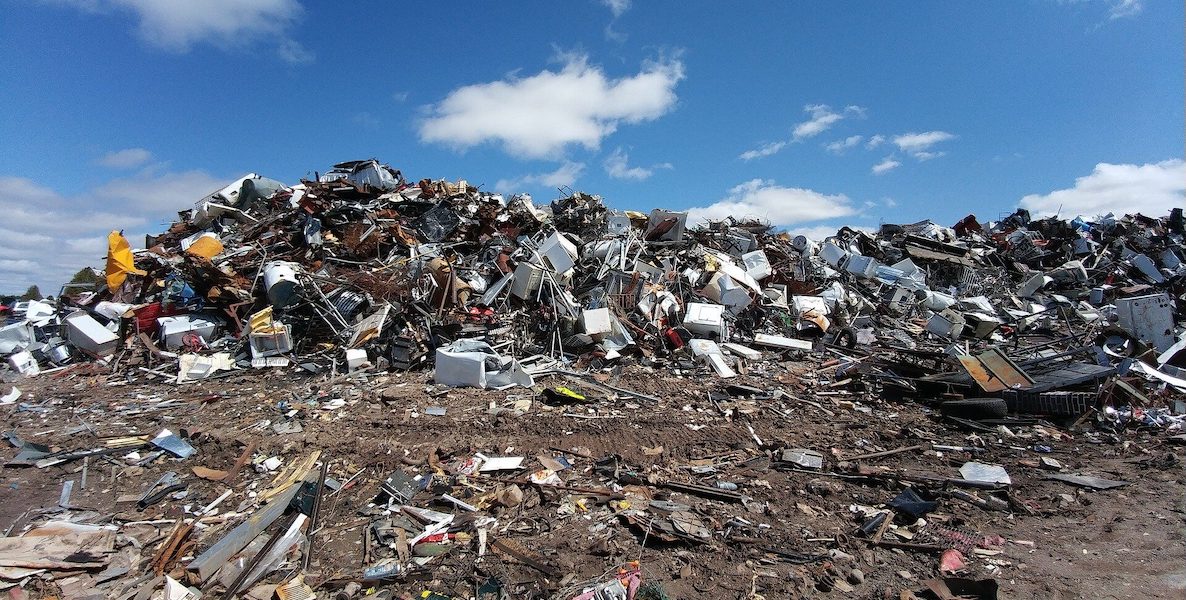When Jared Cannon walked onto the set of ABC’s Shark Tank, he couldn’t help but feel like he was walking into a dream. It was all so…surreal: the lineup of mega-business people waiting expectantly for him, the iconic rug on which all pitches take place, those perfectly polished wood floors.
The founder and CEO of Simply Good Jars, the Philly-based company known for selling jarred salads through vending machines, had spent years watching the show with his wife and imagining what he’d tell the sharks about himself and his business if he ever got to appear on the show. The 35-year-old entrepreneur had even participated in a Shark Tank-style pitch event held by the Philadelphia Alliance for Capital and Technologies in 2019, raising $325,000 for his then-two-year-old business in the process.
MORE ON ENTREPRENEURSHIP FOR GOOD IN PHILLY
Then in 2021, after rounds of interviews, Cannon got the invitation to appear on the actual show at a time when his business, like so many others during the pandemic, stood to benefit meaningfully from the investments and guidance the sharks could provide. When the Covid-19 pandemic struck in March, Simply Good Jars had pivoted away from vending machines—which customers couldn’t access because of building closures—to embrace a retail approach that would let it continue growing. Cannon entered the tank wracked with nerves as he prepared to pitch the sharks.
“It was an out-of-body experience,” he says. “I couldn’t even tell you what I said! But, at the end of the day, I kind of approached it as nobody’s going to know my business better than me.”
His passion paid off: Billionaire Mark Cuban and QVC queen Lori Greiner invested $500,000 in the business, which will enable Simply Good Jars to expand sales to other states.
Filling a gap
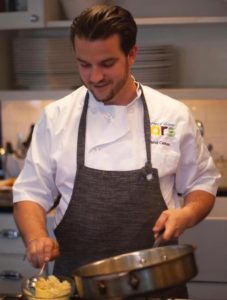
Cannon launched Simply Good Jars in November of 2017 with just $1,000. The idea had come to him in 2015 when he was juggling his job working as a chef with his studies as a masters student at Temple’s Fox School of Business, where he studied business innovation and entrepreneurship.
Between working and attending class, the chef barely had time to scrape together a meal for himself.
“I was trying to eat healthier, but healthy, convenient packaged food was hard to come by,” Cannon says. “I always felt guilty. Through all of that, I kind of sacrificed those things just to get some food and keep going.”
Cannon had grown up with a big, Italian family where he helped roll fresh pasta at three years old before attending culinary school and working in restaurants from Honeygrow and Iron Hill Brewery, to Di Bruno Brothers in Philly. He wanted a fast food option that was both good for him and that tasted good.
Besides being unhealthy, the quick meal options Cannon found himself turning to created a mountain of waste. Wrappers, packaging, plastic utensils and more often end up in the garbage as people pick up food and eat on-the-go. In 2014, 63 percent of the 258 million tons of solid waste in the U.S. was packaging materials, much of it from food.
“You get like a basketball size of garbage that you’re throwing in the trash,” Cannon says. So his company strives to create healthy, convenient meal options while reducing plastic waste and providing meals to those facing food insecurity.
Each jar contains a 600-calorie-or-less salad made with fresh, preservative-free ingredients, like nuts, greens and grains in various, colorful layers. To mix all of the ingredients, all customers need to do is shake the jar for 12 seconds. The menu offers five different salad options—SouthWestern Cobb, Smoked Salmon, Simply Greek Heavenly Pesto and Chicken Quinoa—and they’re all priced around $10.
In the beginning, the business placed their signature vending fridges throughout Center City in businesses and co-working spaces like Flywheel Sports Rittenhouse and the Curtis Center.
Back then, Simply Good Jars relied on the honor system. Customers would open a fridge, select a salad and then Venmo Simply Good Jars $10 for their meal. Once they finished eating, they could return the jar to the fridge for reuse.
In December of 2019, the company became a certified B-Corp, and they’ve committed to going zero-waste by 2022. As one of Philly’s Zero Waste Gold partners, the company has a 90 percent waste diversion rate.
And since their founding in 2017, the company has participated in numerous startup accelerators and grown rapidly: In 2019, the start-up was selected from a pool of 500 applicants for the New York-based Food-X accelerator where they received a $65,000 investment. The group partnered with a San Francisco company to create Simply Smart Fridges which shifted the business away from the honor system by allowing people to pay with debit or credit cards. Before Shark Tank, they’d raised $2.5 million in seed funding.
Simply Good Jars’ ubiquitous pandemic pivot
The business was poised to continue growing—in 2019, they raised $1.6 million and planned to expand to 1,000 fridges by the end of 2020—when in March, Covid-19 started spreading rapidly through the city. The offices, convention centers, hotels and other businesses where their vending machines once sold salads were emptied, as stay-at-home orders swept the city.
Still, while salads went untouched at many of the vending machines, those located in hospitals were quickly emptied as doctors, nurses and other staff worked long hours battling the pandemic.
“All of a sudden the hospitals got ransacked,” Cannon says. “So we said let’s just load up these vending machines in the hospitals for everybody.” The company donated 4,200 meals to Philadelphia-area hospitals.
Though donating to hospital workers was a short-term solution that helped the business prevent food waste, Cannon knew that Simply Good Jars would have to pivot if it wanted to continue growing.
The business shifted to a retail model and the company now sells its jars everywhere from brick-and-mortar locations like Sheetz, Weaver’s Way and several Walgreens in Chicago, to delivery services like GoPuff. They’ve also partnered with ghost kitchens so that people all over the country can buy their products on restaurant delivery services like Doordash and Grubhub.
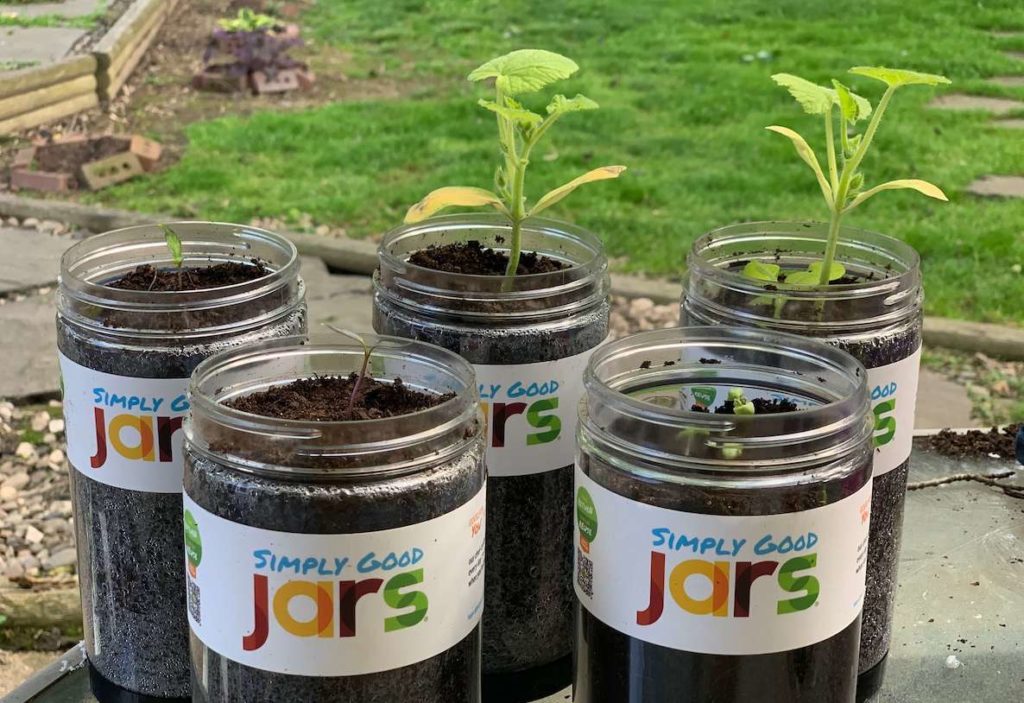
The move to retail has, to put it mildly, been good for business. Though they declined to share exact sales figures, Simply Good Jars is now in over 250 retail locations in several U.S. cities, including New York and Boston, and they expect to quadruple their revenue over the next month after doubling and then tripling their revenue over the last few months.
With that growth, the company has also had to adjust its approach to sustainability. The pandemic ended the company’s jar return policy, but not the firm’s focus on reducing waste. The jars are now equipped with a QR code and if a buyer scans it and commits to recycling or reusing the jar, Simply Good Jars donates a meal to someone in need.
The jars are also designed with reducing plastic waste in mind: Jars are sturdy enough that people can use them again as planters or another type of container, and they’re also fully recyclable.
So far, they’ve donated over 45,000 meals, according to a tracker on the company’s website, and they estimate that they’ve kept 8,718 pounds of trash from landfills.
“The way I look at investment in a company is kind of like rocket fuel,” Cannon says. “You can go 10 times the speed and get places fast.”
Though Cannon said on Shark Tank that the business has yet to be profitable and won’t be for about a year, he explains that that’s because of how much the business has invested in growth. The business did $300,000 in sales last year and is on track to bring in between $700,000 to $750,000 in revenue this year.
“We’ve been consistently invested in the growth of the company,” Cannon says. “Maybe a month after launching, we had a massive waiting list. Ever since, we’ve been trying to move as quickly as we can to expand and grow as needed.”
With the new investment from the sharks, Cannon plans to expand to more states. The company is beginning distribution in Florida soon and hopes to be in retailers nationwide.
While the business model has changed substantially over the company’s life, Cannon says that the product has more or less remained the same. Though these products will remain, Cannon is in the process of developing a new product with Rutgers Food Innovation Center, which formerly housed healthy eating giant Impossible Foods.
“We’re super excited to have that capability and to leverage the existing technology that we’ve spent so many years developing and really applying that to other products that are really good for you and good for the planet,” Cannon says.
Header photo courtesy of Simply Good Jars


